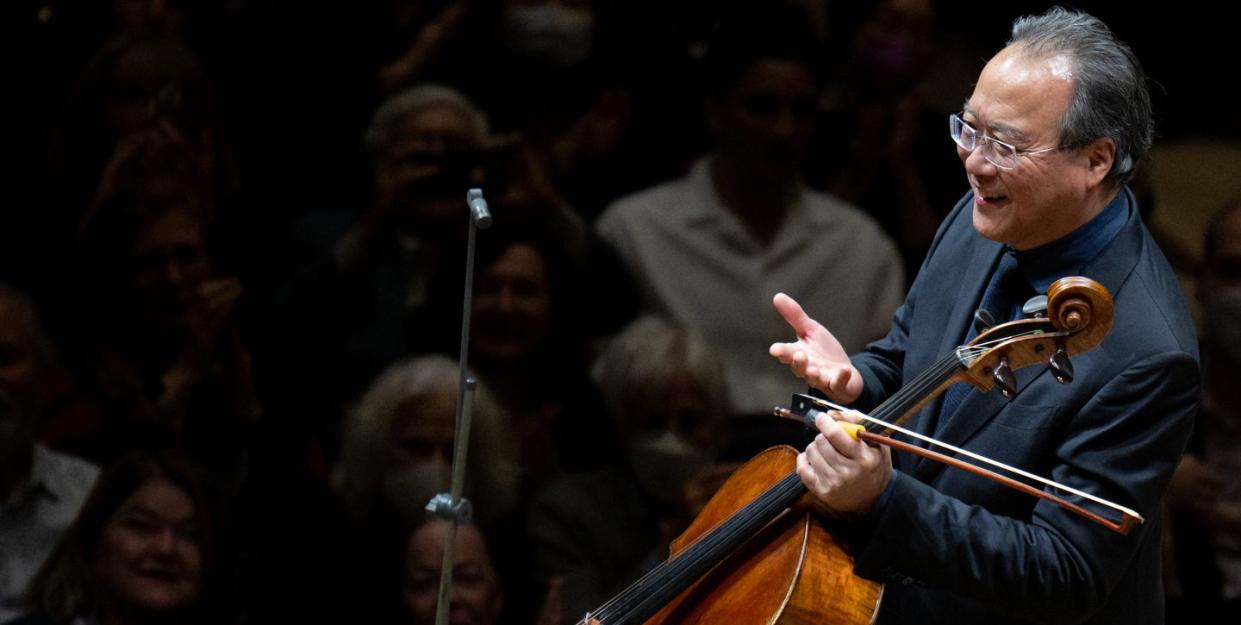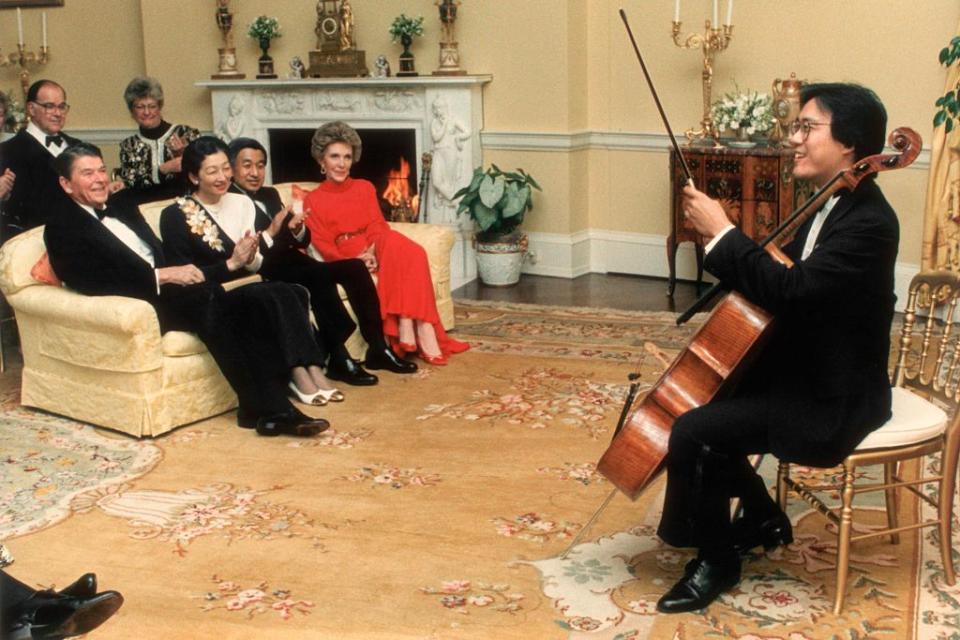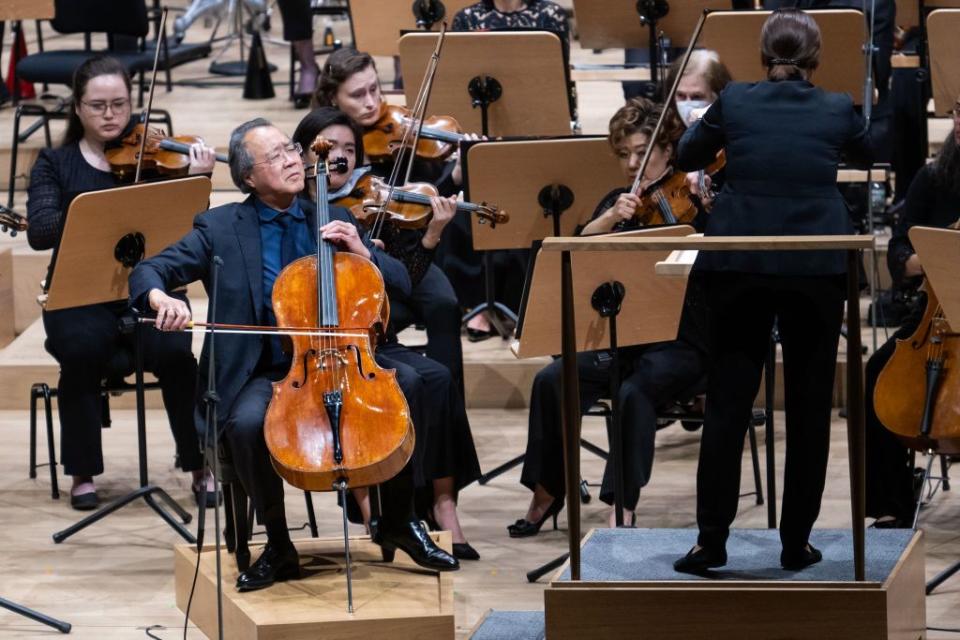In Conversation with Yo-Yo Ma: Are the Keys to Life's Questions in Bach?

Yo-Yo Ma is one of those figures whose fame has far transcended the limits of classical music. A name recognized by all. Like Leonard Bernstein. Or Gustavo Dudamel. Naturally, much of that has to do with his extraordinary talent—and longevity. Ma has been an ace in his field for more than six decades. He was just 5 when he made his debut as a child prodigy, merely a 7-year-old when he played for President Kennedy, and 9 when he performed on The Tonight Show Starring Johnny Carson. He is the recipient of the Presidential Medal of Freedom, awarded to him by President Obama in 2011. He has recorded more than 120 albums and won 19 Grammys. He even made a cameo in the A-lister-packed Glass Onion, Rian Johnson's sophomore Knives Out film. You get the idea.

Perhaps some part of Ma's celebrity can also be attributed to his deep understanding—one shared by those aforementioned maestros—that classical music doesn't exist in a vacuum. Bernstein mingled with the Black Panthers and pioneered television broadcasts of his art form, peeling back its veneer of elitism to appeal to a wider audience—and earning several Emmys for his endeavors. Dudamel's charismatic vibrance and cinematic flair has catapulted him to the pinnacle of superstardom, but even from up there he remains a champion for young talent and new music.
Weaving melodic threads between classical music and other forms of art and beauty, whether it's culture, nature, or philosophy, is Ma's forte. In 1998 he founded Silkroad, a collective for intercultural collaboration, and in 2000 he created the Silkroad Ensemble, which is comprised of artists from Syria to Japan. Last year, he launched Our Common Nature and traveled around the country to work with local talent to stage pop-up concerts, talks, and readings at national parks like the Grand Canyon and the Great Smoky Mountains, delighting many a surprised hiker along the way.

If Our Common Nature is a contemplation of his metier in the context of the external world, Ma's latest project, Music Art Life, explores where it stands at the intersection of existential thought. For the virtual series, which launches May 1 (register here), he has turned to a roster of thinkers, including Krista Tippett, journalist and host of the podcast On Being, Adam Grant, psychologist and author of Think Again, and Baratunde Thurston, comedian, critic, and founding partner of Puck, for conversations and programs centered on the art of living. "Having different views of the world from people who are so good at looking at it from a particular perspective is what gives the richness in life," Ma tells T&C. "How do they practice life? How do they deal with the same issues that musicians deal with? What kinds of conclusions do they come to? Because that's what we're all trying to seek."
Music (and the mentorship of young cellists) will be the anchor, specifically one work: J.S. Bach's six Cello Suites. Not only have they been staples of Ma's repertoire—and a beautifully lyrical source of calm and serenity—since he picked up the instrument more than 60 years ago, but they proved to be a perfect instruction manual for the topic at hand. "These are pieces that I've played forever and they have been the lens that I've used to start exploring the world," he says. "You can get depth, and complexity, and simplicity at the same time."
Spend enough time with the suites, as Ma has, and there are many life lessons—on decision-making, acceptance, finding calm in a hectic world, embracing joy—wrapped up in a single opus. That's the genius of Bach, who Ma calls an artist-scientist. "On the one hand he's totally empathetic to the human condition, like your favorite uncle who will listen to anything that you have to say without judgment," he says. "The other part of him is very meticulous and analytical. All-accepting, but still clear-eyed."
Since he was 5, these pieces have brought comfort. Over the years, Ma discovered deeper layers to connect the music to existence. "More and more lately, I've been thinking it's almost like the practice of life," he says. "All the things we go through daily, you make so many decisions from the moment you wake up that lead you toward a certain direction. And these are the same types of decisions you make when you play a piece of music. Playing Bach makes me think like that."
Then there is the transcendent power of music, whose importance now more than ever can't be overstated. "I think that music actually allows you to get out of those societal pressures, that there's something greater than that, and that we can actually get beyond that," Ma says. "Bach allows you to find a way to tune your brain to that way of thinking, that gives you that freedom of being." We're listening.
You Might Also Like
